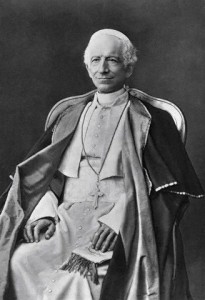Regarding work, President Ronald Reagan once said: “There’s nothing better for the inside of a man than the outside of a horse.” Why? Because work provides us with a purpose—for living out our lives.
In the Garden of Eden (Genesis 2:15), “The LORD God took the man and put him in the garden of Eden to till it and keep it.” In the Dictionary of Bible Themes (2009) scholar Martin Manser asks and provides answers to fundamental questions about work—and our role in it.
What was God’s purpose for ordaining work? That people should be self-supporting (Gen 3:19; Ps 128:2; 1 Th 4:12); That people should find self-fulfillment (Ecc 2:24 See also Pr 14:23; Ecc 3:22; 5:19); That people should serve others (Eph 4:28; Pr 31:15; 1 Th 2:9; 1 Ti 5:8); and that people should glorify God (Col 3:17; 1 Co 10:31; Eph 6:5-8; Col 3:22-24).
What are the consequences of viewing work as God’s ordinance? Work is seen as a moral duty (Tit 3:14 See also Pr 6:6; Ecc 9:10; 1 Th 4:11; 2 Th 3:7-12); Any legitimate work may be seen as God’s calling (Gen 2:15; Ex 31:1-6; 35:30-35; Ps 78:70-71; Mt 13:55 pp Mk 6:3; Ro 13:6; 1 Co 7:17,20-24); and that work is seen as a stewardship from God himself (Col 3:23-24; Mt 25:14-30; Lk 19:12-27; Eph 6:5-8). For criticism of those who will not work, see 2 Th 3:10-11.
How does God work in co-operation with people’s work? Human labour is futile apart from God (Ps 127:1; Gen 11:8; Jn 15:5); God often works through human means (Ps 77:20; Ac 9:15; Ro 13:6; 2Co 7:6); God gives the gifts needed for work (Ex 31:3,6; Lk 12:48; 1 Pe 4:11); Human workers should acknowledge their dependence upon God (Dt 8:18; Ps 90:17; Ne 6:9,16; 2 Co 3:5); and that the apostles are God’s fellow-workers (1 Co 3:9; 2 Co 6:1; Mk 16:20)

When his encyclical Rerum Novarum was published (May 15, 1891), Pope Leo XIII was addressing a world in which collectivism and individualism were colliding. The Holy Father expressed his concern that “The foremost duty, therefore, of the rulers of the State should be to make sure that the laws and institutions, the general character and administration of the commonwealth, shall be such as of themselves to realize public well-being and private prosperity.” But he also noted the importance of our participation in cultivating the fields in which we have been placed.
“Here, again, we have further proof that private ownership is in accordance with the law of nature. Truly, that which is required for the preservation of life, and for life’s well-being, is produced in great abundance from the soil, but not until man has brought it into cultivation and expended upon it his solicitude and skill. Now, when man thus turns the activity of his mind and the strength of his body toward procuring the fruits of nature, by such act he makes his own that portion of nature’s field which he cultivates – that portion on which he leaves, as it were, the impress of his personality; and it cannot but be just that he should possess that portion as his very own, and have a right to hold it without any one being justified in violating that right.” (paragraph 9)
As such, Leo XIII informs us that it is not government that should do the heavy lifting. To paraphrase this good pope: The government may not turn its mind and strength of body toward procuring the fruits of nature for the simple reason that it has no mind or body! Instead, the work of cultivating and tilling have been reserved for you and me. By doing so, we not only do God’s work but also assist our neighbor.
In 1958, the late Leonard E. Read authored a most beautiful essay. In I, Pencil, he gave an ordinary pencil the gift of speech:
“…Simple though I appear to be, I merit your wonder and awe, a claim I shall attempt to prove. In fact, if you can understand me—no, that’s too much to ask of anyone—if you can become aware of the miraculousness which I symbolize, you can help save the freedom mankind is so unhappily losing. I have a profound lesson to teach. And I can teach this lesson better than can an automobile or an airplane or a mechanical dishwasher because—well, because I am seemingly so simple. Simple? Yet, not a single person on the face of this earth knows how to make me.”
The example of a pencil proves that human cooperation occurs without a single order from a government bureaucrat. That is, the simple demand for a pencil sets into motion production all over the world. Loggers and miners and countless others all lend a hand in its creation. In short, one person’s demand creates work—for others!
Regarding work, what should be our conclusions? First, we have been wonderfully made. Second, we have been created for a purpose. Third, our purpose is expressed by the different gifts we have been given to accomplish a certain work. Finally, we have been called to enter into work to both thank God and assist others.
Whether we are retired or just entering the workforce, the bottom line is this: Our work is God’s work! And it is never done.


